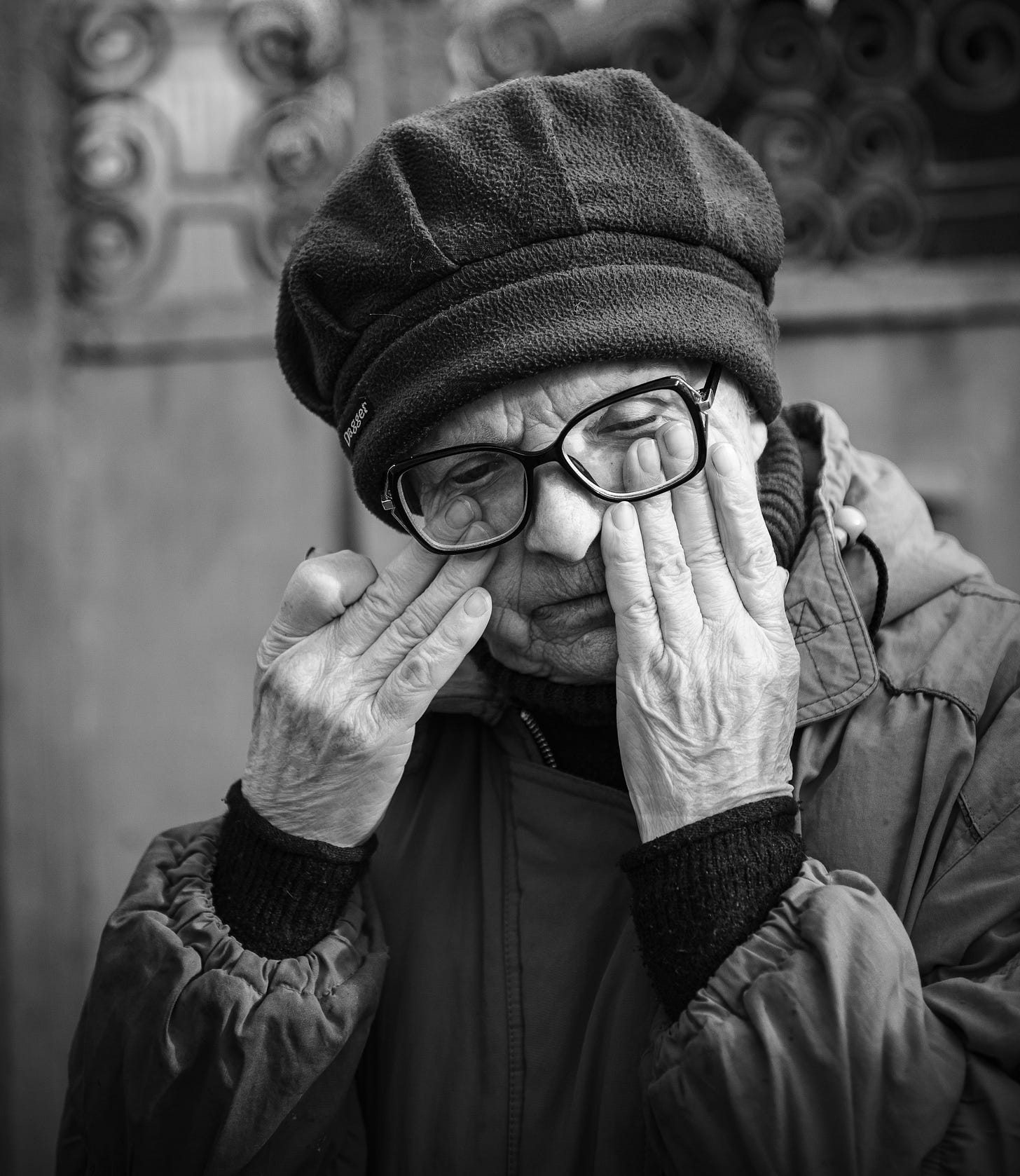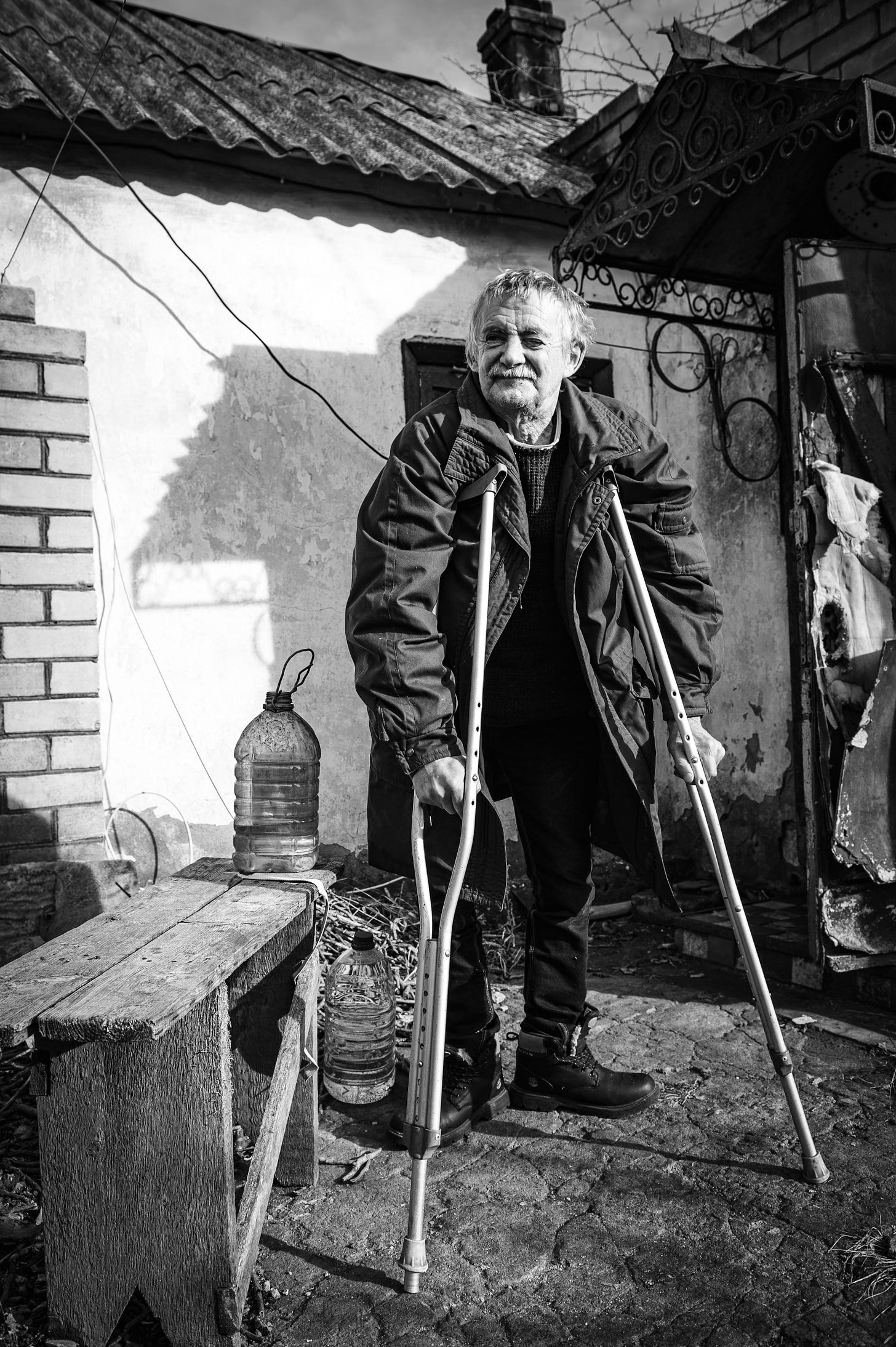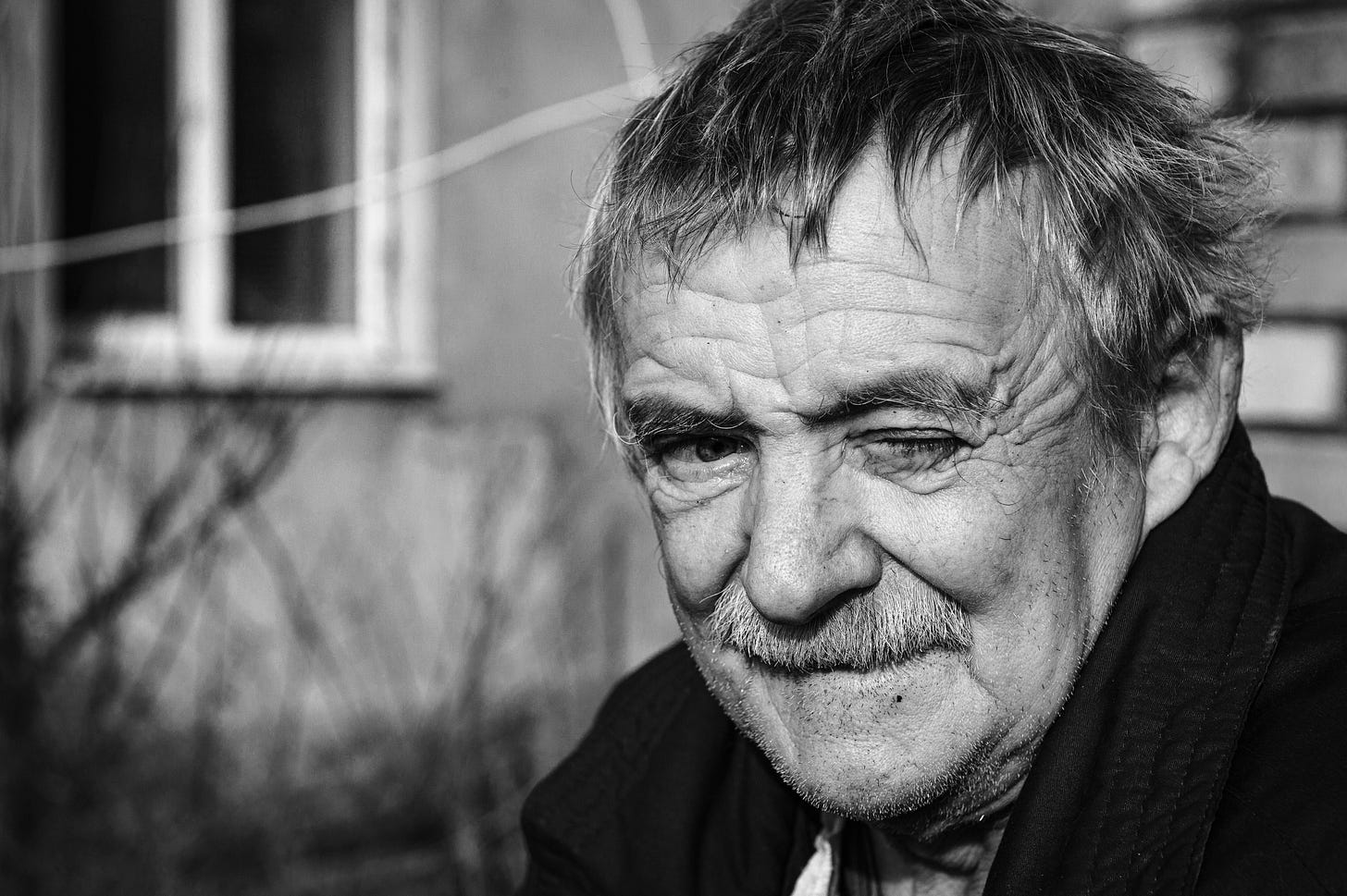Little Street of Horrors
In his latest haunting photo-essay from Ukraine, Paul Conroy meets with the traumatised residents of the war-torn village of Poselok Tekstilschihkvov

The settlement of Poselok Tekstilschihkvov, a village thirteen miles from Kherson centre, appears to have escaped the city's mass artillery and rocket shelling but scratch below the surface, and things are not as they first seem.
There is no tarmac road, and recent rains and snowmelt have filled every pothole with chilled water; Lyuba, our contact and the head of the local volunteers, arrives through this maze. In her late forties and wrapped in a warm nylon parka, her face has one default mode: a warm smile.
As we finish introductions, Nina arrives wrapped in a lightweight blue jacket and winter hat. In her late sixties, her eyes are red from months, not days of tears. "The Russians caught my son, a soldier, with a grenade. They arrested and tortured him before kicking him to death.”
Lyuba comforts Nina.
"They told me he was alive, and I waited eight months for his return. In February, I got a call from the Ukrainian military telling me they found his body in a mass grave. I don't get his pension. I have debts, the winter is here, and I have no gas. Nina’s tears flowed freely as she thanked us and left.
Grisha, abandoned by his family, is now looked after by the village volunteers. We enter Grisha's forlorn and dilapidated cottage a few doors down through an overgrown, cluttered garden. "You don't have to go in. It's awful inside," said Lyuba apologetically. "His family abandoned him, we found him months later, and now the village looks after him.”
Inside, the air was thick with the stench of decay and human waste. Shafts of light penetrated the gloom, illuminating years of built-up detritus covering the rotten floorboards. On hearing us enter, Grisha turned to face us; the socket of his left eye was empty, but his right eye still produced a faint twinkle. With the aid of crutches, he struggled to his feet and, inch by painful inch, made his way outside to the garden.





